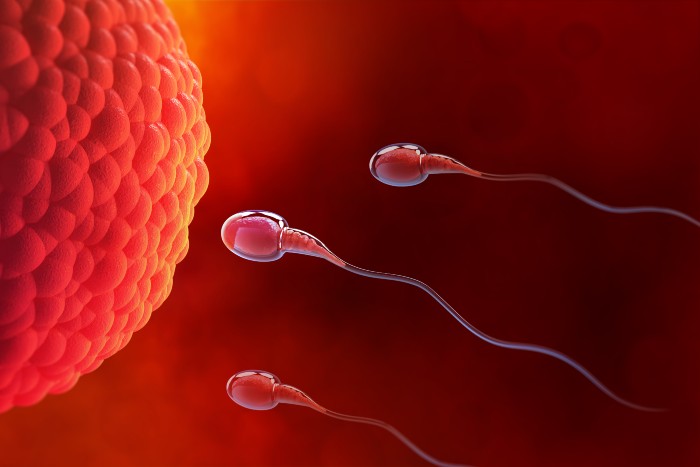To make fertilization happen, a man must be able to have and keep an erection, have enough sperm that are the right shape and move in the right way, and have enough semen to carry the sperm to the egg, A problem in any step in this process can prevent pregnancy. A variety of factors, from genetics and lifestyle to environmental exposures and hormones, can affect a man’s fertility, so it is difficult to isolate the exact cause for infertility. *
Healthy lifestyle choices are among the most important and manageable ways to improve fertility. Sperm quality, quantity or sperm passage may be adversely affected by excessive alcohol, steroids, illegal recreational drugs, such as cocaine and marijuana, an unhealthy diet and obesity. Unsafe sex can lead to sexually transmitted diseases that can block the sperm passage. *
Men can take simple steps to increase their chances of producing healthy sperm:
1) Eat a healthy diet.
Aside from being a generally good practice, keeping a healthy weight and eating food rich in antioxidants is important for male fertility. A diet high in fruits and vegetables contains plenty of antioxidants. Be careful with soy. Some studies have shown that soy intake may be a factor for DNA damage in sperm cells. *
2) Stay fit and lose those extra pounds.
It is particularly important to exercise, stay fit and aim for a healthy weight to increase your fertility. A recent study has concluded that men who are overweight or obese not only have a decreased sperm count but also decreased quality. Having a high BMI can decrease your sperm’s ability to swim and damages the DNA, the genetic material present in your sperm. Researchers also believe that excessive body fat can cause changes in and reduce the reproductive hormone levels such as the testosterone level, causing infertility in men. *
3) Manage stress.
stress can decrease sexual function and interfere with the hormones needed to produce sperm. Stress, depression, anxiety and poor sleep habits are not good for fertility. While they may not have a direct effect on your sperm count or morphology, they can affect male fertility in terms of libido issues or an inability to get an erection. The ideal scenario for fertility involves two parents who are both health in mind, body, and spirit. If you suffer from chronic stress or depression, adjust your diet and exercise routine for the better, and work with a caring professional if needed. *
4) Get moving.
men should include physical activity in their daily routine. The function of the reproductive system depends on the general health of the body, so when a man exercises regularly, the testicles function better, and sperm count improves. *
5) Quite Smoking.
Men who smoke cigarettes are more likely to have low sperm counts. Smoking can also decrease sperm movement and cause sperm to be misshapen. Smoking of any kind (cigarette, JUUL, E-Cig, cigars, marijuana, etc.) is harmful and counterproductive to a healthy conception, pregnancy, and baby. Smoking is associated with impotence and erectile dysfunction. Nicotine, and the more than 4,000 chemicals used in cigarettes, has been associated with damage to genetic material and studies suggest both smoke and smokeless tobacco impairs sperm function. Male smokers can experience decreased sperm quality, lower counts, motility, and an increased number of abnormally shaped sperm. *
If you smoke, stop. There are several smoking cessation programs that can help to support you. *
6) Stay cool.
increased scrotal temperature can hamper sperm production. To protect your fertility, do not wear tight underwear or athletic shorts and avoid hot tubs, saunas, steamy baths, and laptops on your lap. Sperm is stored in the testes outside of the body, to keep the temperature low. Researchers found that prolonging exposure of the testicles to heat adversely affects sperm count, and that a lower temperature is essential for sperm cells to mature. When trying to conceive, limit time in the spa and sauna. *
7) Vitamins and Supplements
For men planning for pregnancy, vitamin supplementation with appropriate male-focused vitamins is encouraged. Additional zinc, folic acid, selenium, Ashwagandha, L-Arginine and L-carnitine can be beneficial for sperm production. DHA, present in fish oil supplements, has also shown beneficial effects on sperm cell structure, and antioxidants, such as co-enzyme Q10, Astaxanthin, Vitamin C and Lycopene can help protect the DNA quality inside the sperm. *

